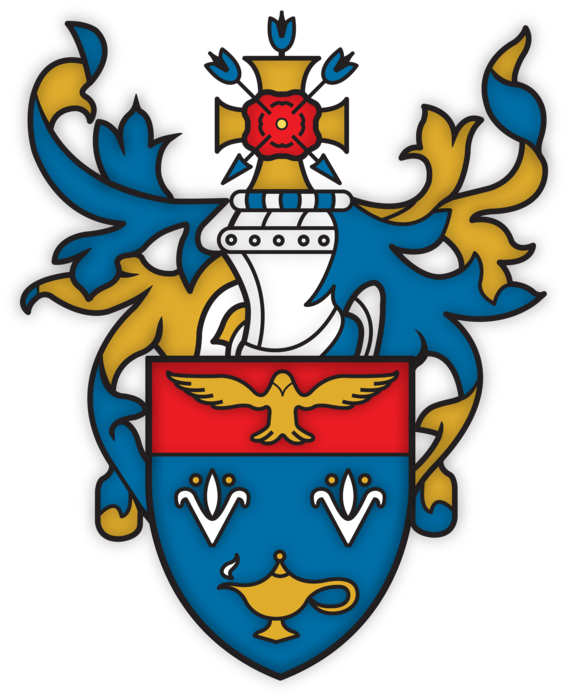RE
Religious Education at BUCHS provides a welcoming environment to explore the Catholic faith and other world religions and views, encouraging students to find what matters to them and to other people, and to ultimately fulfil their potential as a child of God.
Students are supported in their journey through BUCHS to meaningfully make sense of their experience of the world by reflecting spiritually, thinking theologically and acting ethically.
Students are able to learn in an engaging and inclusive environment in which they feel comfortable to share ideas in a non-judgemental and supportive manner. The spiral nature of the curriculum across the key stages gives students the opportunity to grow in confidence and interest in RE where they are challenged and inspired.
Curriculum Summary
Key Stage 3
Programme of Study
In Key Stage 3, students follow the new Religious Education Curriculum Directory , engaging in bespoke lessons created by the department following the ‘Source to Summit’ schemes of work. Alongside their study of scripture and Church teaching, students are invited to explore beliefs and viewpoints through discussion, debate, media and art. At the heart of the ‘Source to Summit’ study is the story of Church from the very moment of creation to its fulfilment in Jesus, and how the ancient stories found in the Bible continue to influence how modern Catholics live their life today. Our lessons are designed to make every student feel comfortable and welcomed in this story, whether they are Catholic themselves or are studying as a member of the Ursuline community.
Key Stage 3 areas of study:
- Creation and Covenant
- Prophecy and Promise
- Galilee to Jerusalem
- Desert to Garden
- Ends of the Earth
- Dialogue and Encounter
Assessment
Students will be assessed half-termly on their current topic and previous topics.
Key Stage 4
Qualification: GCSE
Awarding Body and Paper: AQA Religious Studies
Programme of Study
At Key Stage 4, students study AQA Religious Studies B, which comprises two components; Paper 1 (Catholic Christianity) and Paper 2 (Judaism and Themes). Following a spiral approach, students continue to build upon the knowledge and skills they have developed at Key Stage 3 and apply it to four key areas of study at GCSE; forms of expression, beliefs and teachings, sources of authority and practices. Through study of both papers, students are given the opportunity to reflect spiritually about their own beliefs and viewpoints, think theologically to understand why and what people believe in, and understand how these beliefs and viewpoints encourage believers to act ethically. In year 11, students will dive further into the GCSE content and consider how what they have learned is practised in modern life. The bespoke year 11 curriculum includes study of mission and evangelisation through drama and an introduction to ethical theory to broaden their understanding.
Paper 1
- Creation
- Incarnation
- Triune God
- Redemption
- Kingdom of God
- Eschatology
Paper 2
- Judaism Beliefs
- Judaism Practices
- Religion, Relationships and Families
- Religion, Peace and Conflict
- Religion, Human Rights and Social Justice
Key Stage 5
Qualification: A-level
Awarding body: OCR
Programme of Study
At Key Stage 5, students study the OCR Religious Studies A-Level, which comprises of three components; the Philosophy of Religion, Religion and Ethics and Developments in Christian Thought. Through their studies, students will consider a range of ideas, perspectives and teachings and engage with them critically to form their own viewpoints. They are also expected to develop in their skills as a student to prepare them for life beyond A-Level and take responsibility for their own wider reading to enhance their understanding. A qualification in RS shows a great attention to detail, the ability to empathise with other viewpoints and the ability to argue fluently. These skills tend to lend themselves to people pursuing careers in law, politics, journalism, teaching or public services such as the police or social services.
Philosophy of Religion:
- Ancient philosophical influences
- Soul, mind and body
- Arguments based on observation
- Arguments based on reason
- Religious Experience
- The problem of evil
- The nature of God
- Religious language
Religion and Ethics
- Natural Law
- Situation ethics
- Kantian ethics
- Utilitarianism
- Euthanasia
- Business ethics
- Metaethical theories
- Conscience
- Sexual ethics
Developments in Christian Thought
- Augustine and human nature
- Death and the afterlife
- Knowledge of God’s existence
- The person of Jesus Christ
- Christian moral principles
- Christian moral action
- Religious pluralism and theology
- Religious pluralism and society
- Gender and society
- Gender and theology
- Secularism
- Liberation theology and Marx
General RE
The Sixth Form General RE course is a non-assessed, two-year programme designed for all Ursuline students to participate in, and is inclusive of personal religious beliefs, backgrounds and values. Click here for further information on the General RE course.
